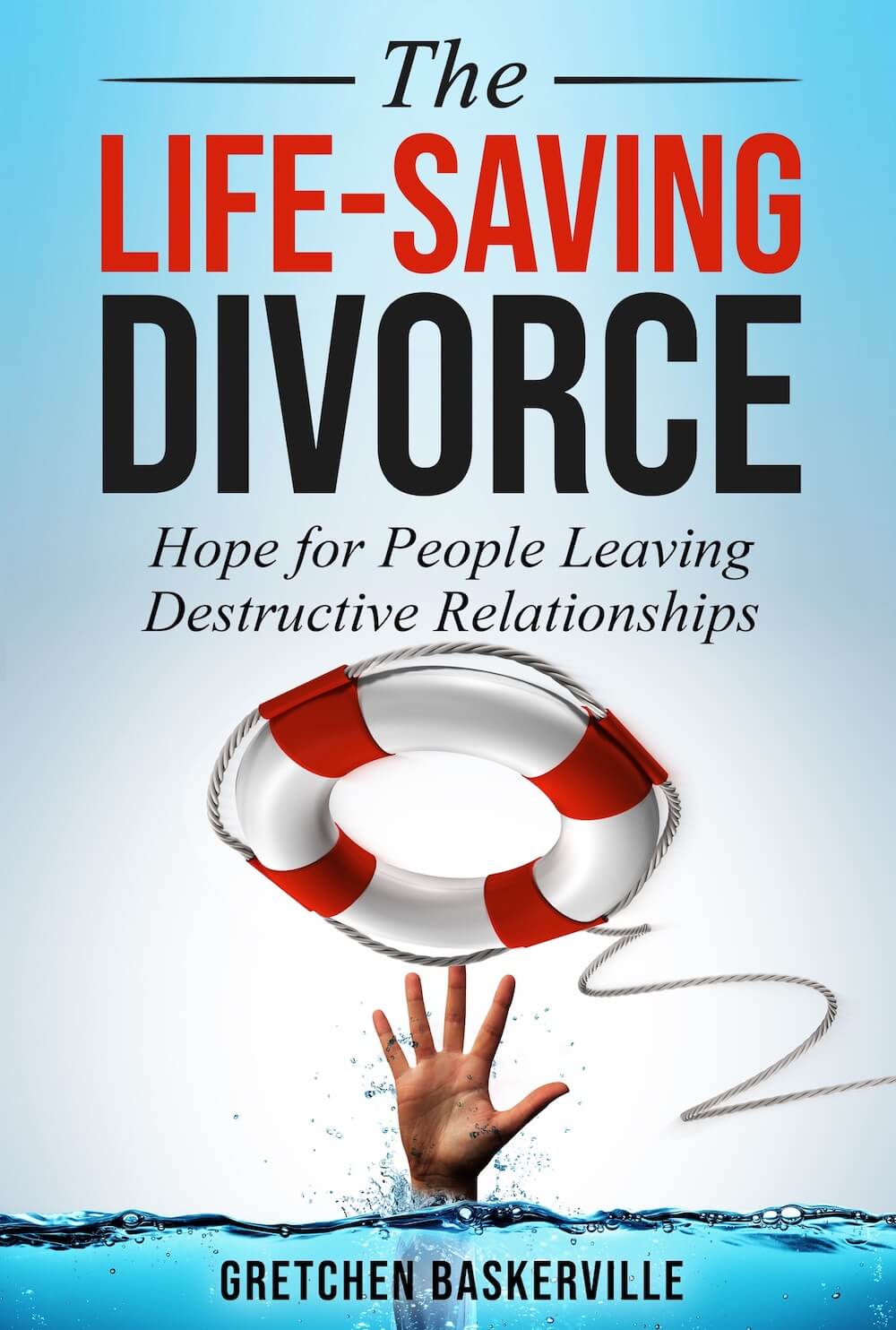Every state in the U.S has different laws about divorce. There is no federal divorce law. So it’s important to educate yourself about your own jurisdiction’s statutes on Marriage Dissolution, Divorce, Child Custody and Alimony, so you know what’s typical or required for your state.
Most states, provinces and countries have websites that give citizens access. Some of the details that apply to everyone in the jurisdiction are listed below. Some may be found in statues and some may require information from an attorney as to what the norm is. Below is general information. Specific information provided to clients may only be done by a licensed attorney.
22 Divorce Facts to Know
Even if you’re not ready to divorce, it’s good to know the answers to these 22 questions (each state has their own divorce laws)
To find out, you can do an online search in several places. If you cannot find the answer, or it does not apply to you, just skip to the next question. See my Online Search Tips below.
-
-1. In my state, is divorce referred to by another name, like the “dissolution of marriage”?
-
-2. In my state, is face-to-face mediation required by the court? Is it required even if you have evidence of physical abuse? Can it be done online or in separate rooms?
-
-3. Is there a period of separation or a “cooling off period” required before or after filing for divorce?
-
-4. Do you live in a Community Property State or an Equitable Distribution State? This may affect how your property will be divided between the two parties. Do an online search using this phrase: Is ___[your state]___ a community property or equitable distribution state.
-
-5. How does my state handle alimony (aka “spousal support”)? Do you have to be married a certain number of years to qualify? What if you’ve been a stay-at-home mother or father for many years?
-
-6. What are the qualifying years for short-term marriage vs long-term marriage?
-
-7. What determines the date of separation (start of divorce process)? This is very important. Some states base it on nights spent under the same roof. Some base it on having consensual sex. Having sex with your spouse can reset the separation clock. If your state has a waiting period, this might delay your divorce. You may have a spouse who knows this and encourages sex to delay the divorce process and take away your advantage. Find out if you can do an “in-home separation,” and still qualify as separated legally.
-
-8. If served papers, how much time is allowed for responding?
-
-9. Does your state typically use Parenting Coordinators or Guardians-ad-Litem to represent your child’s legal rights?
-
-10. Will your state require you to file a Parenting Plan that covers child custody, physical and legal custody of the children, visitation, and time-sharing guidelines?
-
-11. Is a parenting class required? Can it be taken online or only in person?
-
-12. Do you or your spouse have real estate or businesses that you brought into the marriage or have inherited? Look up the state’s view of “marital” versus “non-marital” property. This is important if you have a business, an inheritance, or real estate. It applies to gifts your spouse has given you, for example, your wedding ring. It also might apply if your parents or in-laws helped you with a downpayment on your car or home.
-
-13. Does your state allow you to hire an attorney for certain tasks without hiring them for the full divorce process? This might be called “unbundled legal services,” “limited scope representation,” or “discrete task representation,” aka a-la-carte services. This would allow an attorney to review just one document for you, to make sure you’ve filled it out correctly.
-
-14. Can you remove guns or other weapons from the home if you’re concerned about violence? Here’s the link to gun and firearms laws in each state: https://www.disarmdv.org/
-
-15. Residency Requirements: Have you resided in your state and county long enough to file for divorce or separation? Certain states are notorious for long waiting periods and complicated laws surrounding abuse, making it harder and more expensive to get out. If you have residency in two states (two homes, for example), check this article for the better one to file in. https://time.com/6274819/us-accessible-divorce-unwanted-marriages/
-
-16. Grounds for Divorce: What reasons for divorce does your state recognize? All states in the U.S. have some form of no-fault divorce if you don’t want the expense or public exposure of a criminal-style trial. Mississippi and South Dakota do not allow a no-fault divorce unless BOTH spouses agree to it. Tennessee has a slightly different variation on this. In all other states, you can get divorced without the consent of your spouse.
-
-17. Is Legal Separation an option in your state? Six states do not recognize legal separation: Delaware, Texas, Pennsylvania, Mississippi, Georgia, and Florida.) What are the guidelines? Would it protect you from your spouse’s debts or lawsuit against them?
-
-18. Can you qualify for reduced court and/or legal fees by asking for a “poor person’s order”? Other terms for this are “Poor person’s status,” “in forma pauperis,” “fee waiver,” “indigent status,” and “poverty affidavit.” These terms used to describe legal mechanisms for individuals unable to afford court costs.
-
-19. What is the waiting period between filing the Divorce Settlement Agreement and the Decree Date.
-
-20. Child Support Calculators and Alimony (Spousal Support) Calculators. Many states have online published guidelines, either worksheets or online calculators to get a rough idea of what the court might grant you if you and your soon-to-be ex-spouse don’t agree on the figure. (Do a search for: Free child support calculator for ___[your state]___)
-
-21. If you don’t want to use an attorney, is there support on your court’s website for pro-se Litigants (Do-It-Yourself or Self-Represented individuals)? (See links below)
-
-22. Under what circumstances can you get a default judgment of dissolution/divorce (For example, what if your spouse cannot be found to serve legal papers, or what if he/she refuses to respond)?
Online Search Tips
(1) STATE LAWS. Do a search for: Divorce laws in the state of _____.
(2) LOCAL REGULATIONS in your COUNTY. Do a search for: Divorce procedures in ___[your county]___ Court
(3) Try this link too https://www.divorcenet.com/topics/state-divorce-and-family-laws
(4) You do not need to know all of these facts. Some of them may not pertain to your situation. If you cannot find the information online, ask your attorney.
Online Resources for Divorce Statutes
Resources for US States Divorce Laws: https://www.divorcenet.com/topics/state-divorce-and-family-laws
United States Uniform Marriage and Divorce Act (UMDA 1973): https://www.uniformlaws.org/viewdocument/final-act-89?CommunityKey=c5a9ecec-095f-4e07-a106-2e6df459d0af&tab=librarydocuments
Resources for Canadian Divorce laws: www.canadiandivorcelaws.com
Resources for Australian Divorce Laws: www.familycourt.gov.au/wps/wcm/connect/fcoaweb/family-law-matters/separation-and-divorce
Resources for UK Divorce Laws: www.gov.uk/divorce/overview
Child Support Calculators / Spousal Support Calculators (Alimony)
Child support and alimony (spousal support) calculators are online for some U.S. states. Know your state’s general guidelines before you negotiate.
Do an online search for this phrase: child support calculator for [your state] OR spousal support calculator for [your state]. Fill in the form to the best of your ability and see what the online calculator determines as an approximate support payment. For advice in your personal situation, consult with an attorney in your area.
Find Out Your Divorced Spouse Social Security Benefits
If you are 62 years old or older and were married for 10 years, and have not yet remarried, you may be eligible for social security benefits (even if your spouse has remarried). See https://www.benefits.gov/benefit/4388
Resources for High-Conflict Child Custody and Parental Alienation Situations
DV LEAP and the Dept. of Justice’s Office on Violence Against Women: Custody Resources
For books on parental alienation during or after divorce, scroll down to Topic 10 in the Life-Saving Divorce book list.
Office of Child Support Enforcement helps you collect back child support if your ex moves to another state: OSCE
Know how to show evidence that you put your child’s best interest first: The Holley Factors.
For parents whose children are doing poorly in school due to ADD/ADHD, learning disabilities, trauma, visual/auditory, speech/language impairment, developmental delays, or other problems. Website: Wrightslaw.com
This website helps parents get help for their children so they don’t fall behind or drop out of school. As a taxpayer in the United States, your children are entitled to receive a good education and accommodations if the child has disabilities. This website helps parents know their rights, advocate for their children, and know what local school districts are required to do and provide for their child. This website discusses the legal aspects, how to prepare for an IEP, how to request 504 accommodations, how to discuss the topic with teachers and administrators, and what strategies to use if the school doesn’t seem to follow the proper legal guidelines to assist your child. Another good website for parents, kids, adults, and educators is: https://www.understood.org/
Look up gun laws regarding domestic violence in your state.
Find out if you can remove your partner’s weapons from the home: Note: Depending on the state, you may be able to remove weapons from the house. Here’s the link to gun and firearms laws in each state: https://www.disarmdv.org/
Legal Information for Pro-Se Litigants (Representing Yourself without an Attorney)
- Self-Represented Litigation Network: srln.org
- SRLN State-by-State Page with links to forms, court pages, and in many states, court videos on how to represent yourself in your state. Scroll down to the chart showing the states. https://www.srln.org/taxonomy/term/141
- Directory of Legal Aid Websites: LawHelp.org
- Legal Hotlines: legalhotlines.org
- Find Legal Aid by State:Law Help: https://www.lawhelp.org/find-help
- Find Legal Aid by State: Legal Service Center: https://www.lsc.gov/what-legal-aid/find-legal-aid
- Case Study of Legal Aid Helping a Domestic Violence Victim: Legal Action of Wisconsin DV Case Study
- Do an online search to find a family law facilitator or a self-help center in your state (free advice in completing forms):
-
- Search: family law facilitator in [your state]
- Search: family law self-help center in [your state]
-
- Some law schools have pro bono consulting
-
- Search: law schools pro bono in [your state]
- Or call a law school in your state and ask to be connected to the person who handles pro bono family law (or child custody) cases.
-
- You may be able to hire paralegals to help you with documentation and filings, but they cannot give legal advice.
- You may be able to hire an attorney to look at a document or help you prepare a document. See “Unbundled Legal Services” below.
- Your employer may offer a voluntary legal benefits plan for a monthly fee deducted from your paycheck. Some of these plans may cover part of your family law costs. As an example, see https://www.uslegalservices.net/legal-insurance-plans/family-defender
- The American Bar Association does have volunteer attorneys who provide free legal answers to those who do not have attorneys. It’s limited to 3 per year normally, but right now it is 5 due to COVID (2021). They do ask for the other party’s name to do a conflicts check, but the asker and the attorney is anonymous (you basically become a ID # to them). https://www.abafreelegalanswers.org/
Videos on representing yourself in family law court without an attorney (pro-se litigants):
- PRO SE LEGAL BASICS. Do a search online for pro se legal basics
- CHILDREN AND DIVORCE: ON REPRESENTING YOURSELF in family court (State of Indiana Courts, but the general principles may apply in your state too)
Podcasts and Videos with General Tips on Family Law
- Divorce Basics: Ask a Paralegal video
- Negotiating Like You Matter: short videos by attorney Rebecca Zung.
- ON STRATEGIES How to Represent Yourself in Court: Divorce Atty Rebecca Zung, Tina Swithin (founder One Mom’s Battle), and Dr. Ramani (licensed psychologist) Part 1 Part 2
Unbundled Services (Legal Services a la Carte)
Some states allow you to get legal advice on just one document, for example to file a form, fill out a form, review a form, or just ask a question, without having to pay a retainer for full legal representation. This is available in California and some other states. Do an online search for: Unbundled divorce legal services in [your state]
Glossary of Divorce Terms
FindLaw: Definitions of Legal Phrases
Helpful Books to Explain the Legal Divorce Process
Nolo Press: Nolo’s Essential Guide to Divorce https://store.nolo.com/products/nolos-essential-guide-to-divorce-NODV.html
Helpful Articles
- 8 Common Divorce Questions LINK
- Legal Zoom: 10 Divorce FAQ – Frequently Asked Questions About Divorce LINK
- 10 Things NOT to Do When You Divorce LINK
- Free and Low-Cost Legal Help: Do an online search for Legal Aid for divorce near me
- 40 Secrets Only Divorce Attorneys Know LINK
- FindLaw – includes a list of questions to ask when hiring an attorney LINK
- What if my church threatens to excommunicate or discipline me if I divorce?
High-Conflict Divorces
For books on high-conflict divorce, scroll down to Topic 10 in the Life-Saving Divorce book list. LINK
Experts You Might Need
- Family Law Attorneys
- QDRO Experts and Attorneys (for dividing up pension, retirement, 401(k) and Simple IRA accounts)
- Family Mediators (including those who are not attorneys)
- Collaborative Law Groups
- Certified Divorce Financial Analysts (CDFA) and Certified Financial Planners (CFP)
- Accountants
- Parenting Coordinators
- Guardians Ad Litem
- Therapists specializing in Personality Disorders, Domestic Violence and Abuse, Substance Abuse
- Family therapists specializing in Abuse, Trauma recovery, EMDR.
- Child Psychologists specializing in different age groups: pre-school/play therapy, elementary, and adolescents/teens, gifted and special needs children.
- Real Estate Agents who might specialize in divorce
- Mortgage brokers
- Divorce Support Groups or Divorce Support Meetups
- Domestic Abuse Resources – Shelters
- Legal Aid Services
- Children and Family Resources



 :
:
 Buy PDF
Buy PDF